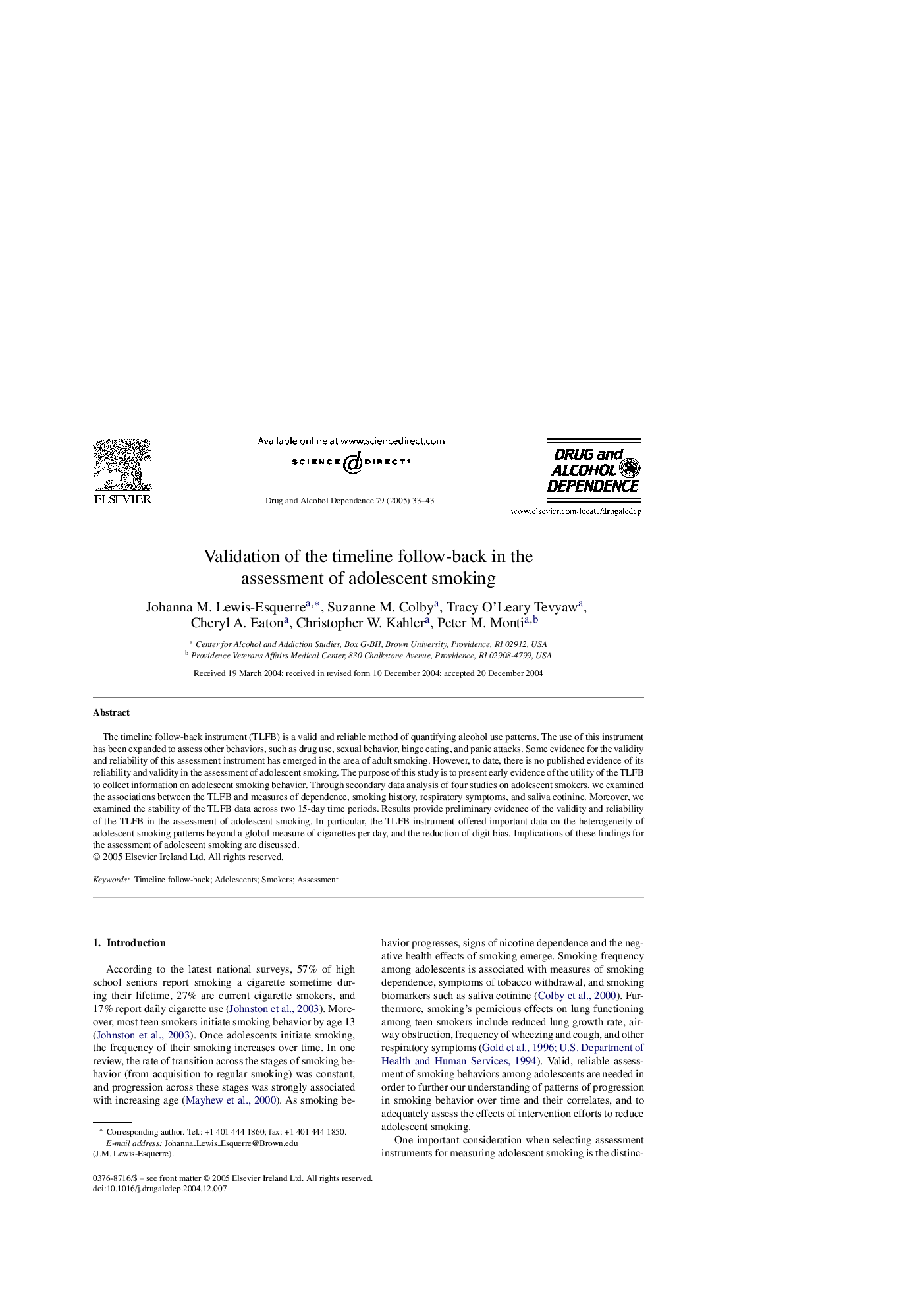| Article ID | Journal | Published Year | Pages | File Type |
|---|---|---|---|---|
| 10509704 | Drug and Alcohol Dependence | 2005 | 11 Pages |
Abstract
The timeline follow-back instrument (TLFB) is a valid and reliable method of quantifying alcohol use patterns. The use of this instrument has been expanded to assess other behaviors, such as drug use, sexual behavior, binge eating, and panic attacks. Some evidence for the validity and reliability of this assessment instrument has emerged in the area of adult smoking. However, to date, there is no published evidence of its reliability and validity in the assessment of adolescent smoking. The purpose of this study is to present early evidence of the utility of the TLFB to collect information on adolescent smoking behavior. Through secondary data analysis of four studies on adolescent smokers, we examined the associations between the TLFB and measures of dependence, smoking history, respiratory symptoms, and saliva cotinine. Moreover, we examined the stability of the TLFB data across two 15-day time periods. Results provide preliminary evidence of the validity and reliability of the TLFB in the assessment of adolescent smoking. In particular, the TLFB instrument offered important data on the heterogeneity of adolescent smoking patterns beyond a global measure of cigarettes per day, and the reduction of digit bias. Implications of these findings for the assessment of adolescent smoking are discussed.
Related Topics
Life Sciences
Neuroscience
Behavioral Neuroscience
Authors
Johanna M. Lewis-Esquerre, Suzanne M. Colby, Tracy O'Leary Tevyaw, Cheryl A. Eaton, Christopher W. Kahler, Peter M. Monti,
